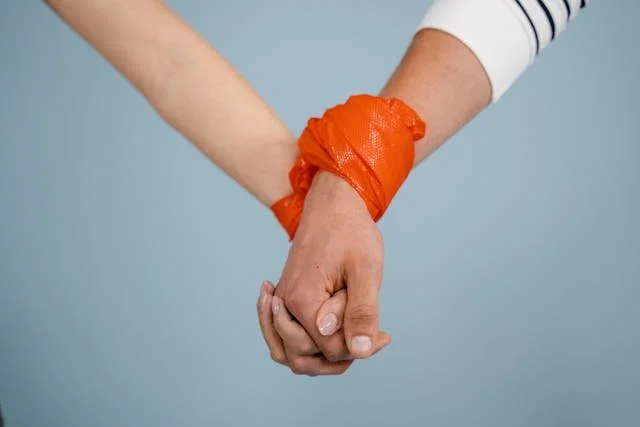Codependency Therapy
Are You Constantly Putting Others First?
Do you feel like your needs always come last—if they even matter at all?
Are you stuck in relationships where you give and give but rarely feel truly seen or valued?
Do you find it hard to say no, even when you're overwhelmed, tired, or hurting?
Codependency can feel like being trapped in a life where your worth is measured by how useful, selfless, or agreeable you are. You might take care of everyone around you while silently neglecting your own mental, emotional, and physical well-being. It can feel noble to be so needed—but eventually, it becomes exhausting, confusing, and lonely.
You deserve more than survival through self-sacrifice. Healing is possible.
What Is Codependency, Really?
Despite popular stereotypes, codependency isn’t just about being in a relationship with someone who struggles with addiction. It often runs much deeper than that—and shows up in everyday relationships with partners, friends, coworkers, and even children.
You might struggle with:
Difficulty identifying or expressing your own needs
Feeling responsible for other people’s emotions or actions
Anxiety, guilt, or fear when setting boundaries
A sense of emptiness or loss of identity outside of relationships
Overfunctioning in hopes of being loved, accepted, or approved
At its core, codependency is a learned survival strategy—one that may have served you in childhood but now keeps you stuck in patterns of overgiving, people-pleasing, and emotional burnout.
Why Does Codependency Happen?
Codependency often begins in environments where love felt conditional, boundaries weren’t respected, or emotional needs went unmet.
Some of the early experiences that may contribute include:
Being a caretaker for a parent or sibling from a young age
Growing up in a household where conflict, addiction, or emotional neglect was present
Receiving praise only when you were helpful, quiet, or “easy”
Learning that expressing needs or having limits led to rejection or punishment
In these environments, you may have learned that your value came from what you could do for others—not from simply being who you are. These patterns don’t disappear on their own. Without support, they often play out again and again, especially in adult relationships.
A Compassionate, Whole-Person Approach to Codependency Therapy
You don’t need to keep abandoning yourself to feel loved or safe. In our work together, we’ll gently untangle the patterns keeping you stuck—and help you build a new foundation based on authenticity, emotional safety, and self-worth.
My approach to codependency therapy includes:
-
Inner Child & Attachment Work
We explore the unmet emotional needs from earlier in life that may still be driving today’s relationship patterns. Reconnecting with your inner child can offer profound healing.
-
Nervous System Regulation
Chronic people-pleasing and hypervigilance often leave your nervous system in a state of constant stress. We’ll use somatic tools to help you feel grounded and safe inside your own body.
-
Post Induction Therapy (PIT)
PIT helps identify and heal the core wounds at the root of codependency—such as abandonment, inadequacy, or enmeshment—so you can stop reliving them in your adult relationships.
-
Boundaries and Communication
We’ll practice the real-life skills of saying no, speaking your truth, and trusting that your needs matter just as much as anyone else’s.
-
Reclaiming Identity and Joy
Over time, codependency can erode your sense of self. Therapy is a space where you get to rediscover who you are—what you enjoy, what you want, and what makes life meaningful for you.
What You Can Expect in Therapy
Healing from codependency is not about becoming "selfish"—it’s about learning to care for yourself with the same compassion you’ve always shown others.
In therapy, you can expect to:
Understand the root causes of your codependent patterns
Learn how to set boundaries without guilt
Build confidence in your voice and needs
Cultivate relationships based on mutual respect and emotional safety
Rediscover the you that got lost beneath all the caretaking
You don’t need to keep sacrificing your well-being to keep the peace. You are allowed to take up space, to have needs, and to matter.
Common Questions About Codependency Therapy
-
Will I have to cut people out of my life?
Not necessarily. Therapy isn’t about making sudden, drastic changes. It’s about helping you choose what’s healthiest for your relationships—with clarity, intention, and support. In many cases, relationships improve when boundaries are set lovingly and consistently.
-
Isn’t it just normal to want to help people?
Of course! Caring is beautiful. The difference is when helping others means abandoning yourself. If guilt, fear, or anxiety keep you from saying no—or if your worth feels tied to being needed—there may be codependent dynamics at play.
-
I’ve been this way for as long as I can remember. Can people like me really change?
Absolutely. These patterns are learned—and what’s learned can be unlearned. With the right support, you can build new ways of relating to others and to yourself that feel grounded, empowered, and free.
You Are Worth Your Own Care
It’s not your fault that you learned to survive by putting others first. But it is your birthright to live a life where you feel whole, seen, and worthy—just as you are.
Let’s begin your journey back to yourself.
You don’t have to do it alone.
Codependency Therapy Surprise Location:
18789 N Reems Rd., Suite 260, Surprise, AZ 85374
Offering in person therapy for the greater phoenix area. Phone and online appointments for individuals across the state of Arizona and Washington.
Virtual and In person Appointments Available
Appointment Hours
Sundays: 12:00pm-8:30pm
Tuesdays: 12:00pm-8:30pm
Wednesdays: 12:00pm-8:30pm
Phone
(602)-633-5712

















